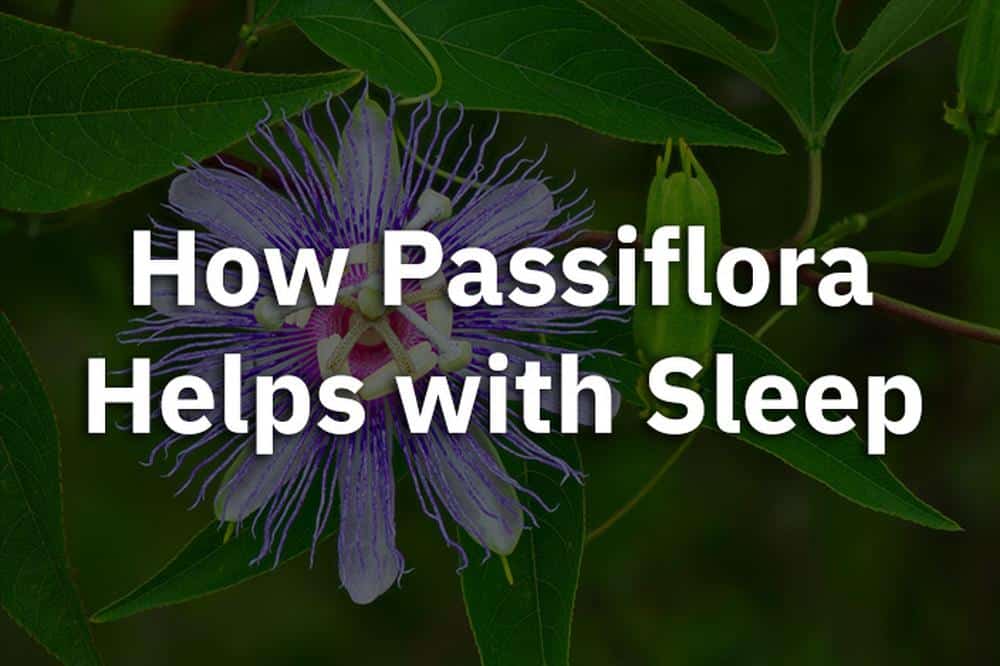Passiflora, commonly known as passionflower, is a flowering plant with relaxing and calming qualities.
A review of how passiflora promotes sleep is provided below. Make sure to check out our ultimate sleeping guide as well as important sleep hygiene tips to improve your sleep.
What is Passiflora?

Passiflora is a beautiful vine-like plant with distinctive, bright flowers. It is a member of the Passifloraceae family. It is indigenous to parts of North and South America.
Passiflora flowers are recognized for their intricate and striking appearance with colorful petals and filaments. Apart from its aesthetic value, passiflora has been utilized for a variety of uses, including medical and culinary applications.
Passiflora has long been recognized in traditional medicine for its potential soothing and sedative qualities. It has been used to assist with anxiety reduction, relaxation, and sleep. Compounds in the plant interact with specific receptors in our brain and body, which may contribute to its calming effects.
Is Passiflora Effective in Helping With Sleep?
Many research studies have been conducted to determine the impact of passiflora on sleep.
In a 2017 study published in the Sleep Science Journal, researchers monitored the brain, eye, and muscle activities of rats during different wakefulness states. They discovered that Passiflora incarnata extract extended total sleep time in rats considerably, mostly by extending the deep sleep stage known as slow wave sleep (SWS). These findings imply that Passiflora incarnata extract has the ability to induce sleep.

Human subjects have also been used in research. Participants in a double-blind, placebo-controlled study drank either passiflora herbal tea or a placebo drink. The study found that participants who drank passionflower tea rated their sleep quality substantially higher than those who drank a placebo.

To assess the safety and sleep-inducing effects of passiflora, Kim et al. conducted a study on mice. The mice were given passiflora for five days in a row, and their behavior and metabolic changes were tracked and compared to a control group. The study found no significant changes in body composition, indicating that passiflora had no significant side effects. Similar to prior studies, they noticed a sleep-inducing effects of the passiflora on the mice.
What Is the Mechanism by Which It Works?
Interaction with GABA
Passiflora may interact with a neurotransmitter called gamma-aminobutyric acid (GABA) in our brain. GABA is known to have a calming effect and plays a role in regulating sleep.
Passiflora's compounds may enhance GABA activity, promoting relaxation and potentially improving sleep quality.
Serotonin Regulation
Passiflora may potentially have an effect on serotonin levels in the brain. Serotonin is a neurotransmitter that regulates mood and sleep-wake cycles.
Passiflora may induce a more regular sleep-wake rhythm, resulting in better sleep, via altering serotonin activity.

Anti-Anxiety Effects
Passiflora has historically been utilized for its anxiolytic (anti-anxiety) effects. Anxiety frequently interferes with sleep, making it difficult to fall or stay asleep. Passiflora may indirectly contribute to better sleep by lowering anxiety levels.
If you’re interested in an all natural sleep aid that contains passiflora in addition to other adaptogens, make sure to check out Deep Sleep Reishi.

